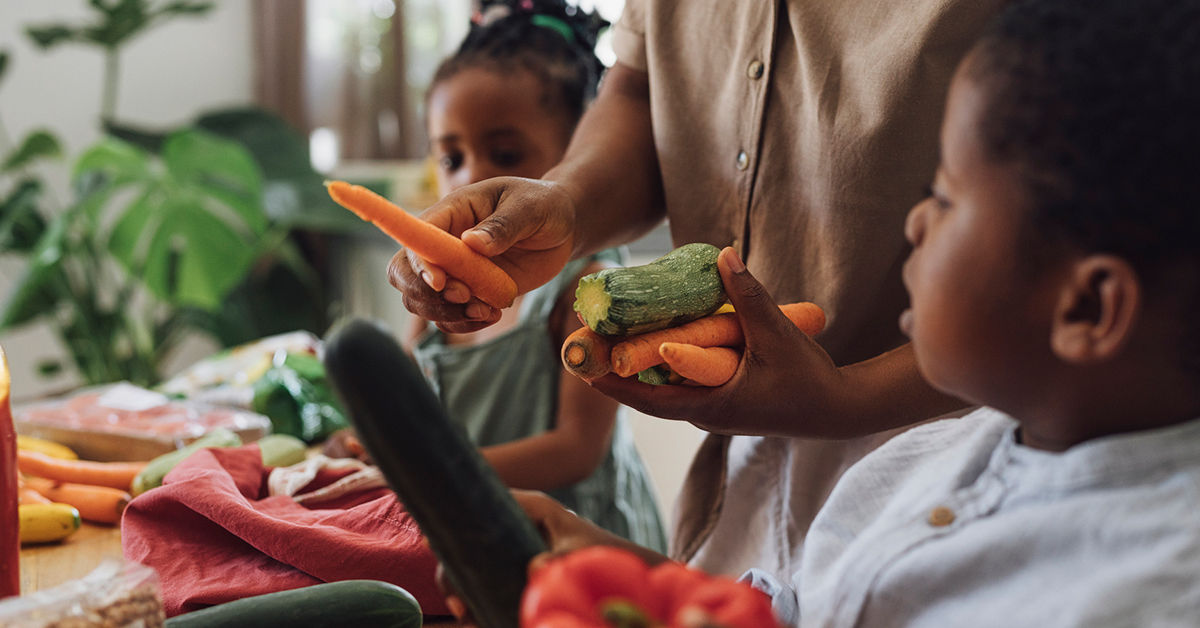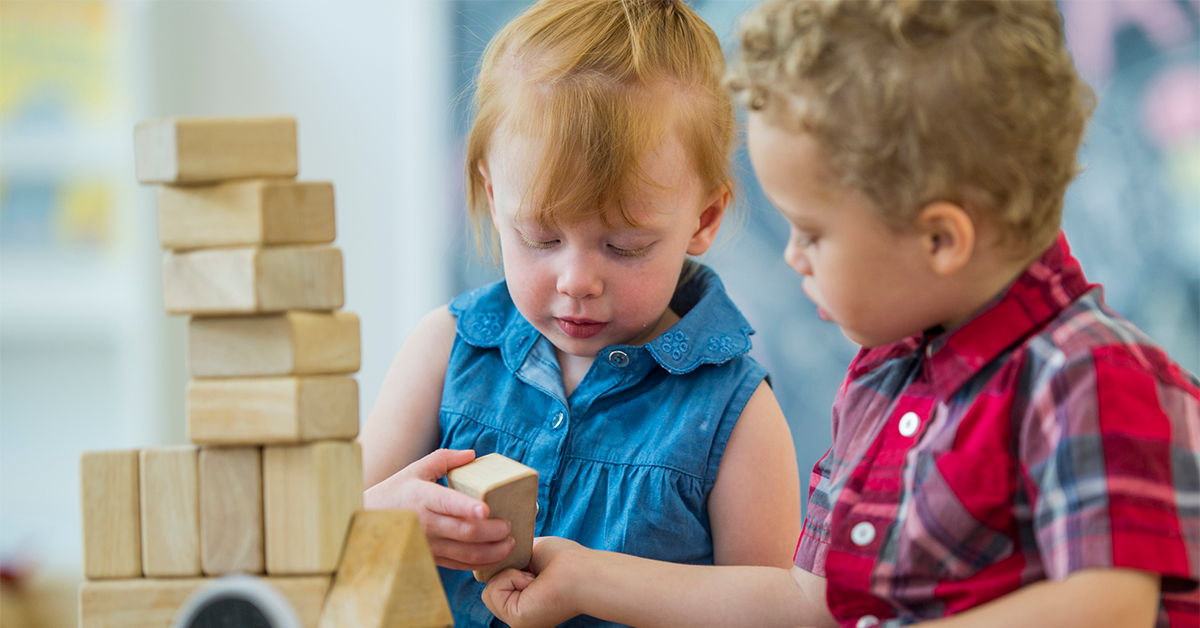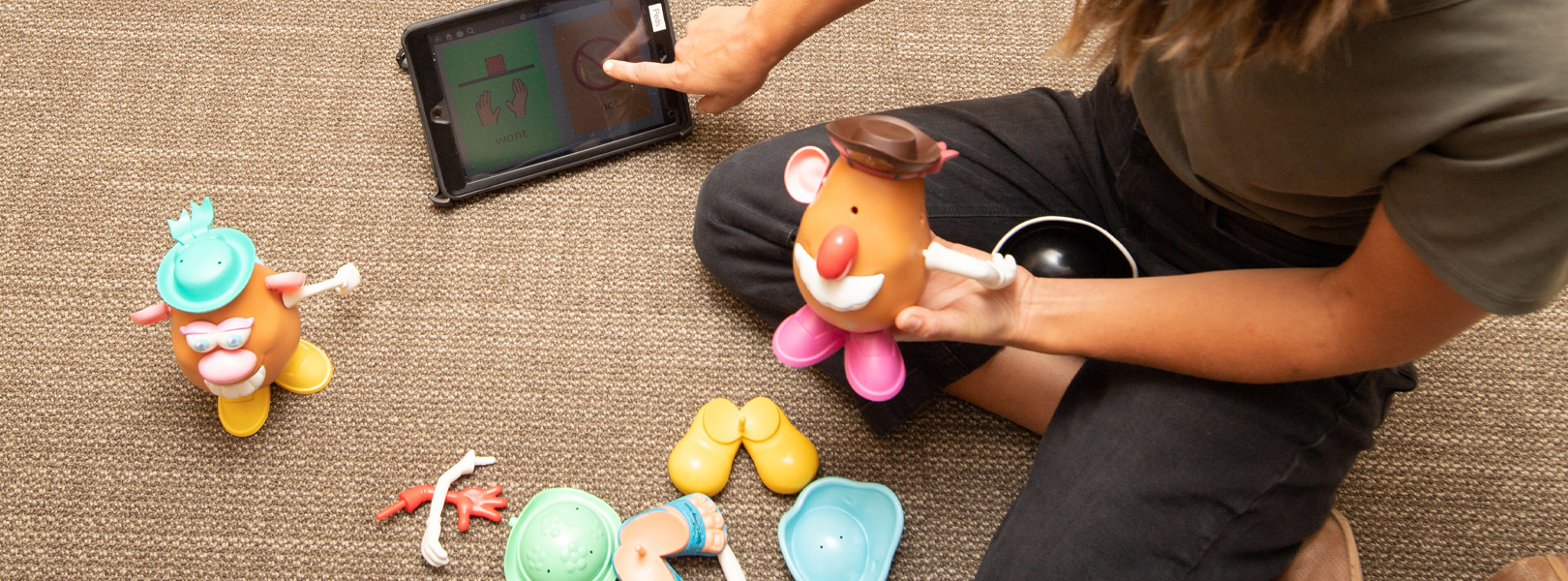Recommendations for every age
Cooking as a parent is challenging whether you love to cook — or despise it. If you love to cook, it will likely take years before a child appreciates your culinary competence. If you hate to cook — and you’re not fortunate to have a partner who loves to cook — it’s likely to feel like a never-ending chore. After all, some rough math shows you’ll be responsible for close to — if not more than — 10,000 meals before your child is 18 years old. Regardless of which cooking camp you’re in, it’s a great idea to get kids of all ages involved in cooking. If you love to cook, you’re sharing your passion — and if you hate it, you’re training them so you can delegate the task when they’re older!
Babies and toddlers
Clearly, babies can’t “help” in the kitchen. But you can incorporate them into your cooking routine. Here are some ideas:
- Give them measuring cups or wooden spoons to play with while they sit in their high chair.
- Talk to them about what you’re doing, as you’re making dinner.
- Have a cabinet in your kitchen with Tupperware and plastic lids they can sit by and access. They can pull out the pieces and play with them.
- Take your kids grocery shopping; talk to them while they’re in the cart and narrate what you’re doing. (Side note: Grocery stores can be great kid-friendly places to take kids to eat.)
- Have pretend food for them to play with or a play kitchen set.
Recognize that cooking with kids will take longer, as will grocery runs. Plus, with the latter, there’s likely to be some tears from kids and side-eyes from fellow shoppers (if there are indeed tears from kids…) But it’s good to get them engaged in the cooking process from the start.
Older toddlers and preschoolers
In some ways, these are the glory years of cooking with children, even if it’s messy. They love spending time with you, cooking and helping in the kitchen builds independence and skills, they’re excited to help, they’ll wear the cute little apron and chef hat proudly, and they’re often just super cute. Here are some ideas to build in:
- Use kid-friendly tools both to keep them safe and give them a sense of ownership or autonomy. These might include plastic knives or a stool for them to stand on. Or perhaps a colorful set of measuring cups or mixing spoons.
- Have them handle age-appropriate tasks. Let them measure things and dump them in a bowl or press the button on the blender or food processor.
- Give them the kitchen timer to set and let you know when it goes off.
- Have them wear a little chef hat or a fun apron. They’ll feel special and look super cute.
- Continue to take them to the grocery store. Let them pick out a new fruit, vegetable, or meat to try.
- Make fun shapes out of pancakes or creative presentations (on occasion…don’t set yourself up for doing this every meal!)
- Have some creative designations for different meals: Taco Tuesday, Waffle Wednesday, Breakfast Dinner, and Sunday Night Sundaes.
Also, have them help out in setting the table. Show them that it’s everyone’s job to help with getting a meal on the table.
Elementary school-age children
Kids at this age can be really helpful in the kitchen. They also can start to make a few things, which fosters their own interest in cooking and baking. This can be a great after-school activity, too.
- Carry over some of the activities for toddlers and preschoolers.
- Look through cookbooks together and have them choose a few recipes they’d like to help make
- Taste what you’re making and talk about the colors, textures and flavors.
- Decorate plain aprons for a weekend art project.
- Go to a farmers market and let kids ask the farmers questions about the different foods.
- Start a little garden and have the kids involved, even if it’s simply a small herb plant. Let them make something with what they help grow.
- Ask questions about the measurements. As kids are starting to learn about fractions and measurements, let this be a time to put some of their newfound skills to work.
Elementary school-age kids can start to be more involved in chores related to cooking. They can start to load the dishwasher, be more involved in setting the table and help put the groceries away. Again, show them that everyone needs to contribute to the cooking process.
Middle Schoolers and teenagers
Some kids will really take to cooking (see MasterChef Junior) and others will grudgingly help out. Regardless of where your child is (and it might change from year to year…or day to day…), get them involved because someday they will be on their own and need to have some cooking skills. Below are a few ideas to get your adolescents involved:
- Continue to build on earlier ideas.
- Assign them a night to make dinner. Have them get involved in the shopping.
- Let them have a set of “their” recipes they make.
- Watch YouTube videos about cooking and share what they learn.
- Have cooking contests with their siblings or friends. Smoothies are a great option here.
- Sign them up for cooking classes at community ed or online.
- Have them make recipes from the class. Let the kids try out what they learned in a community ed, online, or “family and consumer science” class (home economics of old) class.
- Watch cooking-related shows together or movies, from Ratatouille to Julie & Julia (Here’s a list, though several are Rated R: 10 Great Cooking Movies to Inspire Your Inner Chef | Reader’s Digest)
- Figure out how to make a popular recipe more healthy. Try different ways to cook it and see what substitutions worked.
- Have them make recipes from the class. Let the kids try out what they learned in community ed, online, or “family and consumer science” class (home economics of old) class.
Recommendations for all ages
No matter the age of your children, getting them involved in cooking can be a great way to bond. It can be a lot of fun, plus it teaches them critical life skills they need to know how to do. Here are a few final pieces of advice:
- Recognize that having kids involved in cooking is messy — whether they’re a toddler or a teenager. But it’s worth the mess and the extra time.
- Invite grandparents to get involved, if you’re fortunate to have them in your lives. This is a great way to pass down family recipes, strengthen relationships — and have someone else to share in your teaching of an important life skill.
- Make it a family affair and create rules that work for your crew. Give everyone a role in the process so grocery shopping, cooking and cleaning up is not just one person’s job but everyone contributes. Create family rules around preparing food that makes sense for your family. Here are some ideas: the cook isn’t responsible for cleaning up, the only thing that’s appropriate to say when someone has cooked a meal for you is “thank you,” you don’t have to eat all of it but you have to try everything, etc.
Love it or hate it, cooking is something we all must do. If you have ideas you’d like to share, we’d love to hear them.












